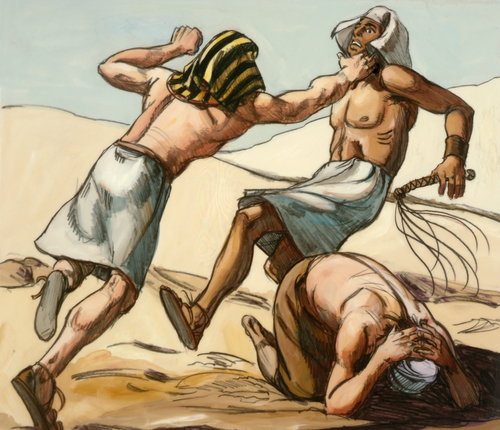
Photo Credit: The Church of Jesus Christ Latter-Day Saints
The prompt for this question is not a re-reading of the
Hagadah— the Passover story.
It is the rise of American labor militancy.
It is the rise of American labor militancy.
Earlier this week, 147 school districts in Indiana cancelled school
when teachers walked out. Many were in Indianapolis to protest low salaries
that start at $30,000. They’ve watched large-scale teacher walkouts in
Oklahoma, Arizona, Kentucky, and West Virginia achieve good results for improving
pay and preserving benefits.
When an occupation that is 78 percent female, and nearly 100%
college educated, walk-off their jobs to protest, anything is possible for
labor militancy.
That’s a special case, you say?
Recently, Uber drivers in major cities had a coordinated shutdown of service by turning off their apps while they were sitting at airports. Lyft’s temporary surge in business was felt as something like a strike for Uber.
Recently, Uber drivers in major cities had a coordinated shutdown of service by turning off their apps while they were sitting at airports. Lyft’s temporary surge in business was felt as something like a strike for Uber.
That brings me to the main story: A federal court imposed a
$93 million judgment this week on the ILWU, otherwise known as the dockworkers’
union. Back in the day, however, they were known as Wobblies because of their
radical bent.
The union has only $8 million, so its future is uncertain.
This all stems from a tiny labor dispute that got out of hand
in Portland, Oregon. The port is unionized, but a warehouse opened on the
property with another union representing those workers. The ILWU demanded that two jobs at the warehouse be represented by their union. Their demands were rejected.
Next, the ILWU refused to handle cargo to and from that warehouse. Over time, shippers lost confidence in the port.
Eventually, the whole place shut down because the labor dispute chased away business.
Next, the ILWU refused to handle cargo to and from that warehouse. Over time, shippers lost confidence in the port.
Eventually, the whole place shut down because the labor dispute chased away business.
Under a 1947 law (Taft-Hartley Act), unions are financially
responsible for damages caused by “secondary boycotts.”
A primary boycott occurs when a union stops working or calls for a boycott against its employer. In this case, the ILWU had no employees at the Portland warehouse, but they boycotted it illegally. Hence, it was a secondary boycott.
And the teachers' walkouts are secondary actions, too. They aren't directed at their employer, a specific school district. No, they are aimed at another party (state legislatures).
A primary boycott occurs when a union stops working or calls for a boycott against its employer. In this case, the ILWU had no employees at the Portland warehouse, but they boycotted it illegally. Hence, it was a secondary boycott.
And the teachers' walkouts are secondary actions, too. They aren't directed at their employer, a specific school district. No, they are aimed at another party (state legislatures).
Who cares, you say.
Well, most things we buy at the store (ahem, or via Amazon) come through a West
Coast port—and all of them are ILWU-represented. If they cannot survive as a
union, then chaos could erupt in one more ports.
As someone who is sympathetic to labor, I’m just telling it straight: Those workers have a history of taking matters in their hands, if they feel threatened. That is not good for trade.
As someone who is sympathetic to labor, I’m just telling it straight: Those workers have a history of taking matters in their hands, if they feel threatened. That is not good for trade.
So what does this have
to do with Passover?
Moses was a peaceful man— that is, until he witnessed an Egyptian slave master smiting
a fellow Jew. Moses slew the slave master. He fled across the Red Sea to
Midian, where he encountered The Angel of the Lord, speaking to him
from within a burning bush on Mount Horeb.
From there, Moses was directed to free the Jewish people.
From there, Moses was directed to free the Jewish people.
The point is that when it comes to labor, people have a
breaking point-- whether they are teachers, Uber drivers, dockworkers, or slaves. And when they reach a boil, upheaval often results.
No comments:
Post a Comment